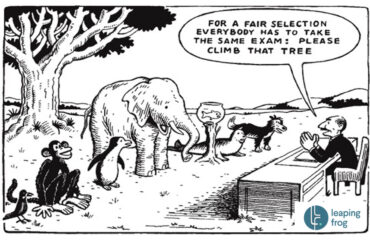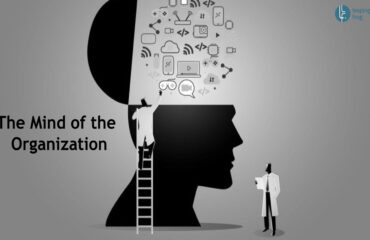
In Uncertainty We Learn and Grow: Embracing Growth in Times of Change
Explore the transformative power of embracing growth uncertainty for personal and professional growth. Discover how navigating through uncertain times can lead to valuable learning experiences and personal development. As a habit, I tend to glance through my LinkedIn posts and look for things that help me learn. In one such post, someone mentioned her journey of becoming comfortable with reaching out to the fraternity through videos, posts, articles, and other channels. Initially, she found it extremely uncomfortable. The journey was challenging, and she learned to embrace the discomfort in the process. Moving into that uncomfortable zone made her reflect upon herself and realise her strengths, made her more confident, and she could now relate to her purpose of spreading her knowledge. She evolved…she grew.
We have known that it is pertinent to move out of our comfort zone, explore the unknown, and learn to embrace uncertainty and unexplored to help us grow, but there is still resistance from somewhere within. Where does this resistance come from?
The triune brain system talks about human beings possessing three levels of evolution of the brain with which we are privileged. The primitive brain (reptilian or the lizard brain!) is the foremost in the evolutionary process, then the emotional brain (mammalian or the monkey brain) and finally, that part of the brain unique to the human species – the neo-frontal cortex (the logical brain).
In simple language, the lizard brain is about instincts. This is the survivor brain that protects us from fear…fear of anything, from wild animals to anything that makes us uncomfortable. It may be as simple as confronting an unpleasant and uncomfortable situation, venturing into unexplored and uncertain areas.
The monkey brain is about emotions – love, pain, grief, joy, and happiness. It also helps to decide between our liking and disliking.
And finally, the latest in evolution – the neo-frontal cortex. This part of the brain uses logic and reasoning based on data and information processing. This helps us to decide between right and wrong.
The survivor brain hates to make us uncomfortable. It controls all the involuntary and vital functions of the body, including our ability to react to situations. And, amongst others, react to situations that are perceived to be unpleasant. Being the most primitive, it is also the strongest. It can override the mammalian and logical brain unless we are consciously aware of situations and how we would ideally like to respond. Our habits are also a function of this part of the brain.
Perhaps this is one of the reasons that we resist being in uncertainty. Be it in conflict, challenge, unknown, ambiguous or anything that does not provide stability.
However, research conducted by scientists at Yale Medical School shows that uncertainty boosts learning and hence our growth. The brain is more active when a situation is unpredictable and less active when there is stability and certainty. And when the brain is in a less active state, our ability to learn is also lessened.
In this interesting experiment conducted by the Yale scientists, monkeys were exposed to two situations – a volatile situation and a stable situation. And during the study, the scientists monitored the brain activity of the monkeys.
In the “volatile situation,” the monkeys were given options of hitting two targets – red and green. The reward associated with hitting the red target was getting juice 80% of the time, and the green target fetched juice 20% of the time. After 20-40 attempts, the target was reversed. That is a 20% chance of juice for hitting the red target and an 80% chance of juice for hitting the green target. Naturally, the monkeys had to exert themselves to pay attention to figure out which target would give them the best return.
There were orange and blue targets in the “stable situation” with chances of 80% and 20% of getting juice, respectively, for hitting the targets. In this case, there was no reversal of the targets. The monkeys figured out that the easiest way to get the reward was to stick to the orange target; they merrily did that because the reward probabilities were stable.
The scientists studied three separate parts of the pre-frontal cortex during the experiment. A common finding was that the monkeys’ responses to choices and outcomes were enhanced in the volatile condition when learning was necessary. Uncertainty or volatility significantly influenced the degree of choices and consequences.
*In the words of Daeyeol Lee, Yale medical school professor of neuroscience, psychiatry and psychology, ”Perhaps the most important insight from our study is that the function of the brain, as well as the nature of learning, is not ‘fixed’ but adapts according to the stability of the environment,”. The more stable the environment, the lesser the learning. While a more deficient stable environment stimulates the learning process.
So, what can be concluded from this monkey experiment is that we learn more when situations are not very sure. The uncertain environment activates the brain to assimilate signals and information better. And in the process, we learn more.
By consciously venturing out into uncertain situations, we invite ourselves to more learning. The more we learn, the more we grow and evolve. That’s the beauty of our evolution.
Photo Credit: Inc.com
*Information Credit: https://qz.com/1343503/a-new-study-from-yale-scientists-shows-how-uncertainty-helps-us-learn/




